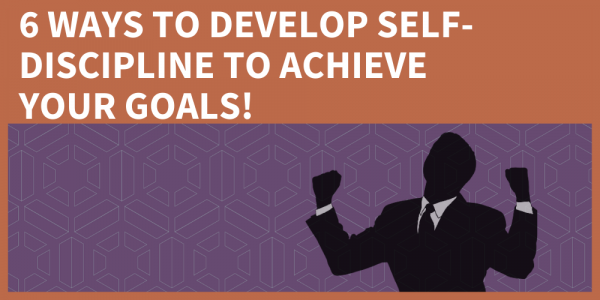There are many so-called ‘secrets to success’ out there, but the real difference-maker in
achieving your goals is self-discipline.
Numerous studies have shown that self-discipline increases performance, physical and mental
health, and overall happiness.
In the famous Marshmallow test from the 1960s, researchers conducted a study on school
children by offering them a marshmallow. The kids could either eat it right away or wait twenty
minutes and get two marshmallows. Researchers followed participants after forty years and
discovered that those children who had the self-control to wait twenty minutes ended up with
higher SAT scores and grades, increased focus, and were overall more successful in life.
But your self-control is not stagnant – even if you were an impatient child, you can develop self-
discipline now to help you achieve your current goals.
Whether you’re working on losing weight and becoming healthier, learning a new skill, or
growing your business, self-discipline is the best way to achieve your goals.
Here are six ways you can develop your self-discipline and be better positioned for lifelong
success.
- List your barriers to success
What is currently keeping you from reaching your goals for the year? Maybe you’ve tried a few
plans to reach your goals already, but you find yourself sliding back into old habits. That’s
totally normal.
Additionally, it helps to know what your weaknesses are. If your pitfall to your diet is leftover
cookies, try to remove or minimize the impact. Give away the cookies, don’t save extras, or plan
in just one when appropriate. - Visualize the rewards
Focus on who you’ll be when you reach your goals. How will it feel? What is that person doing
differently than what you’re doing today?
You can think both in the long term and short term. But visualizing your success can help you
overcome the immediate gratification for long-term success.
Studies of visualization have found that mental practice is just as effective as physical practice.
One study found that 76% of small business owners who used a vision board to get started have
achieved their goals.
You can also plan tangible rewards for yourself in your process, like buying yourself new clothes
as you lose weight or treating yourself to vacation when you reach a certain amount of work.
Write down what you’ll gain when you achieve your goals. Refer back to this when you want to
give in.
- Create routines
You can’t develop self-discipline without a plan, and it’s not going to just magically happen. You
need to develop a strategy including action steps and routines that will help you build good
habits.
For instance, you might plan to go to the gym three times a week or call three customers a
week. Keep track each week of how you do, and even if you don’t do it perfectly keep it up until
you can do it consistently every week.
Over time, following your routine will become easier and you can automatically reach your
goals. Eventually, it won’t even take much effort to follow your routine because it will become a
habit. - Share your goals with others
Sharing your goals with others can help you be more accountable and will increase your
motivation to succeed because you don’t want to fail in front of others.
Research shows that who you share your goals with can be just as important. While one study
found that sharing with strangers led to less motivation, another found that sharing goals with
someone more successful increased commitment.
You don’t need to do this alone. You can rely on a family member, friend, mentor, or even work
with a professional coach to help you get to where you need to go. - Practice overcoming discomfort
Every period of growth will include some discomfort, so rather than avoid it entirely, prepare
for it. The more you avoid discomfort, the more you will avoid it, preventing you from growing.
Allow yourself to experience negative emotions and stick to your plan as much as you can.
For example, if your goal is weight loss you might put yourself in a situation where there are
tempting treats to practice turning them down.
When you do make mistakes in your plan, allow them to be a learning experience for
tomorrow, rather than an end to your journey.
- Focus on consistency, not perfection
The pyramids weren’t built in a day, and you won’t build self-discipline in a week either. It takes
consistent effort to build up your self-discipline. But it’s not about doing it all perfectly, it’s just
about getting started and sticking with it.
The most successful plans to reach your goals are the ones you can stick to. According to one
weight-loss study, slow and steady improvements predicted more long-term success than quick
fixes. In other words, researchers could predict who would be successful in their weight loss
goals long-term based on how gradually participants lost weight.
If that means making your goals a little more achievable, then so be it. Start small with micro
habits that can build to lifelong changes.
For more useful information and tips on how you can improve your Life Work Balance,
increase productivity and work smarter, check out my FREE eBook ‘4 Epic Life Work Effect
Pillars of Smarter Hybrid Working’.
This action focused eBook is to help organisations and hardworking employees achieve
smarter work and life success through performance improvement, hybrid work productivity
and burnout prevention.
